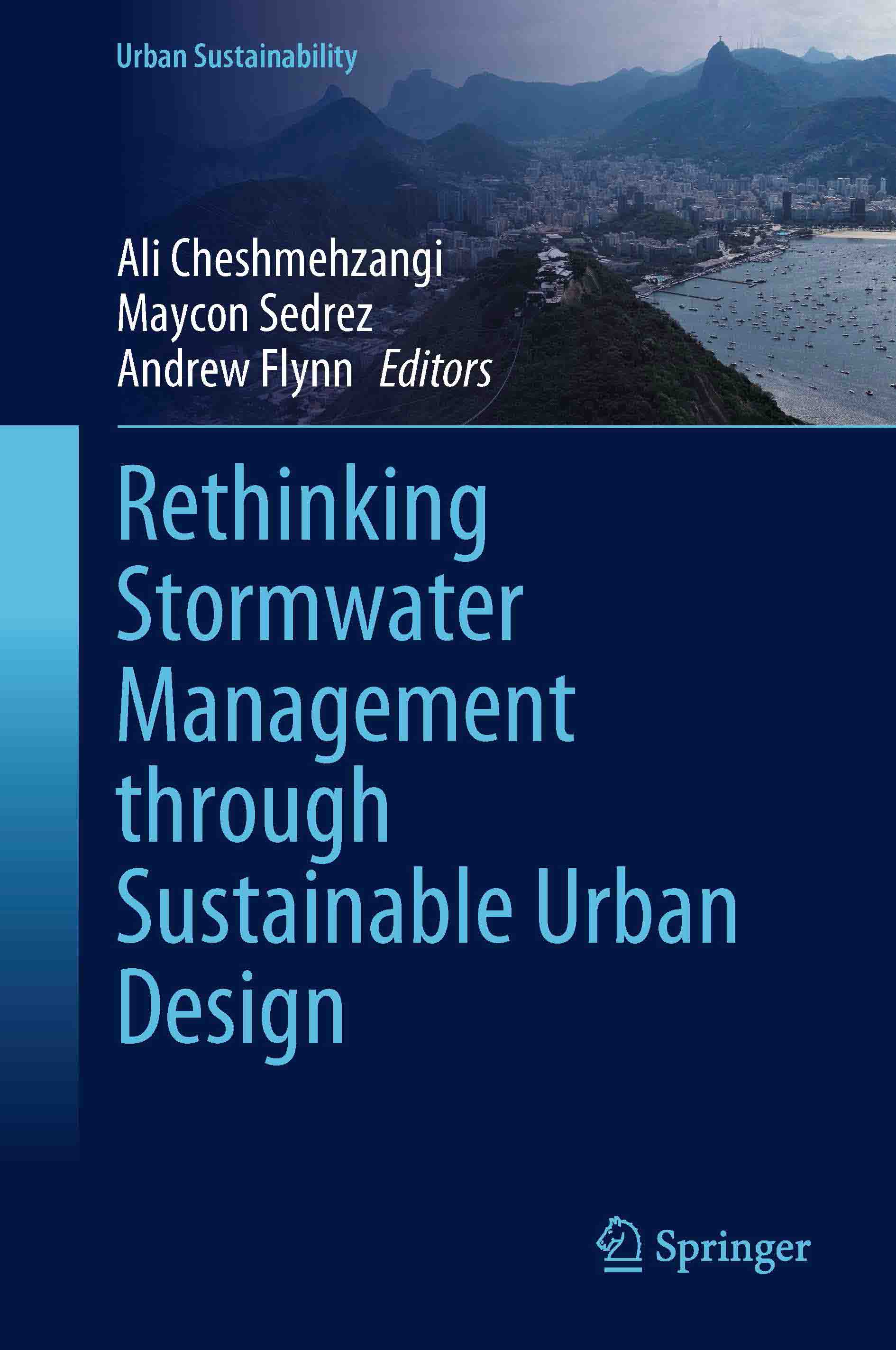Rethinking Stormwater Management through Sustainable Urban Design
Title: Rethinking Stormwater Management through Sustainable Urban Design
Editors: Professor Ali Cheshmehzangi, Maycon Sedrez and Andrew Flynn
Publisher: Springer (2024)
Traditional approaches to managing stormwater in urban environments have often been inefficient, unsustainable, and environmentally damaging. Some have even had adverse impacts on cities’ structure, ecological capacity, biodiversity and infrastructures. But in recent years, a paradigm shift has embraced sustainable urban design in this area.
As part of that shift, Rethinking Stormwater Management through Sustainable Urban Design delves into the critical intersection of urban development (and design) and water management – exploring innovative strategies, technologies and holistic approaches to managing stormwater in our cities, and providing global case study examples for how we might rethink stormwater management from a design perspective. From green roofs and permeable pavements to rain gardens and constructed wetlands, a range of strategies demonstrate the potential to transform our cities into more resilient, adaptable, and sustainable landscapes.
Case studies include (but are not limited to) the urban growth challenges of using nature-based solutions for stormwater management in Vietnam, water-sensitive urban design through polycentric participatory approaches in Indonesia, sustainable urban stormwater management in Turkey, step wells and community hydraulics in India, and stormwater runoff management using low-impact development in Portland, USA.
Read more about Rethinking Stormwater Management through Sustainable Urban Design here.

